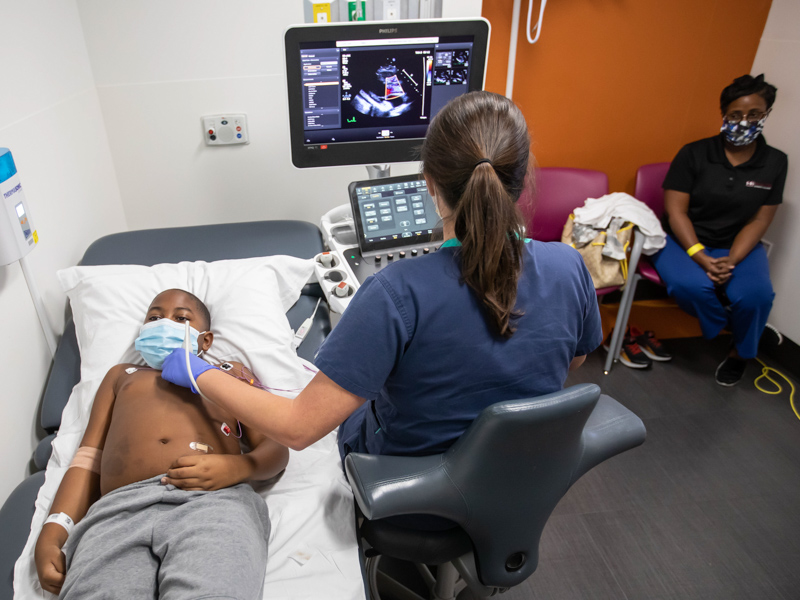London (Parliament Politic Magazine) – The most recent results from the REAMP-CAP study, which is the world’s largest trial of various treatments for critically ill adults with COVID-19, led by Imperial College London and the Intensive Care National Audit & Research Centre (ICNARC) in the UK, indicate that a common cholesterol-lowering medication may enhance outcomes for these patients, whereas high-dose vitamin C has proven to be ineffective.
According to the study’s findings, simvastatin, an easily accessible and cost-effective medication employed to lower cholesterol, demonstrates a substantial likelihood (96%) of enhancing survival rates and decreasing the duration of intensive care support required by patients. In practical terms, this equates to saving one life for every 33 patients treated with simvastatin.
Hospital Patients Looking for Treatments
In a distinct analysis, researchers determined that the administration of intravenous, high-dose vitamin C to hospitalized COVID-19 patients proved to be ineffective and possibly even detrimental. The researchers believe that these findings have the potential to enhance the outcomes of critically ill COVID-19 patients and aid healthcare professionals globally in refining patient treatment.
This research, financially and logistically supported by the National Institute for Health and Care Research (NIHR), has been published in two papers on Wednesday, October 25th, in the journals JAMA (for vitamin C) and NEJM (for simvastatin).
Professor Anthony Gordon, who serves as the UK Chief Investigator for REMAP-CAP and holds positions at Imperial College London’s Department of Surgery and Cancer as well as being a Consultant in Intensive Care Medicine at Imperial College Healthcare NHS Trust, commented:
“Our work to date through this landmark trial has helped to improve the treatment for some of the sickest patients with COVID-19. “Working with partners in hospitals around the world, we’ve been able to generate real world evidence to show which treatment combinations are most effective in the treatment of severe COVID-19. “To have both of these landmark results from REMAP-CAP published simultaneously is testament to the ability of this trial to efficiently evaluate multiple interventions.
Simvastatin Benefits
The study encompassed 2,684 critically ill patients across 141 hospitals in 13 different countries. It was revealed that when administered as a treatment for critically ill COVID-19 patients, Simvastatin exhibited a remarkably high likelihood (96%) of enhancing outcomes, which is a composite of improved survival rates and a reduction in the duration of intensive care unit support required. Furthermore, there was a 92% probability of improving survival at the three-month mark.
The discovery regarding simvastatin is strongly expected to enhance outcomes for critically ill COVID-19 patients and provide valuable insights for healthcare professionals worldwide, thus improving the treatment of patients with severe disease.
Professor Danny McAuley, who holds the positions of Professor and Consultant in Intensive Care Medicine at the Royal Victoria Hospital and Queen’s University Belfast, and serves as the lead investigator for the Simvastatin Domain of REMAP-CAP, remarked:
‘’These results are really encouraging as they have shown that treatment with simvastatin is highly likely to improve outcomes in critically ill patients with COVID-19. This research will help healthcare professionals internationally to improve the treatment of patients with COVID-19.”
Read More: The Unseen Healthcare Strain of Long COVID: Over 2 Million Affected in UK
Vitamin C
In the second analysis, researchers delved into the use of high-dose vitamin C for COVID-19, concluding that there is no evident benefit for patients. This investigation, constituting the largest trial of vitamin C, harmonized findings from two clinical trials (REMAP-CAP and LOVIT-COVID).
It involved over 2,500 participants from 20 countries, encompassing both critically ill and non-critically ill COVID-19 patients in hospital settings. These participants received high-dose intravenous infusions of vitamin C, at levels approximately 100 times stronger than typical vitamin C supplements found in regular stores.
The analysis unequivocally demonstrates that high-dose vitamin C failed to yield improvements in patient outcomes. In light of this evidence, the segment of the trial focused on high-dose vitamin C was terminated, and subsequent data analysis strongly suggested that this treatment may potentially have adverse effects.
The REMAP-CAP study was initiated in March 2020 to investigate various treatments for COVID-19. It involved the enrollment of hospitalized patients with either moderate or severe COVID-19, necessitating intensive care unit (ICU) treatment.
The study’s design involved the randomization of patients into different combinations of treatments. This approach allowed researchers to assess a wide array of treatments for COVID-19, encompassing antiviral medications, drugs that regulate the immune response, and therapies aimed at modulating or supporting critical aspects of the body’s response to the virus.


